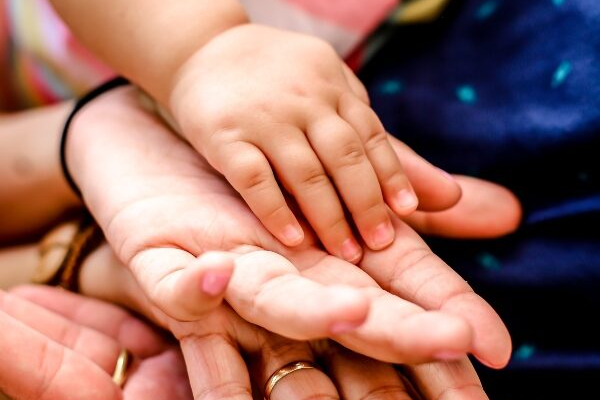Female same-sex parents conceive children together in different ways including:
- through sperm donation at UK fertility clinics,
- through sperm donation at overseas fertility clinics,
- with the help of someone they already know (either conceiving at a fertility clinic or through home insemination), or
- with a donor or co-parent found for the purposes of conceiving together, for example via a matching website (again, either conceiving at a fertility clinic or at home).
Whichever path you choose, this guide steers you through what you need to know about UK law.
How does the law regulate sperm donation for same-sex parents in the UK?
UK law protects you from discrimination on the grounds of your sexual orientation and gender identity. You therefore cannot be denied access to treatment at a UK fertility clinic because you are in a same-sex relationship, and you should have fair access to NHS funding for your treatment (albeit that NHS funding for fertility treatment is often limited for everyone so you will need to check locally what you are entitled to).
If you conceive at a fertility clinic in the UK, your treatment will be subject to the rules set by the law and by the UK regulator the Human Fertilisation and Embryology Authority. These set out the support and information you must be given, the consent forms you need to sign, the screening that has to be carried out on egg and sperm donors, and the numbers of families that each donor can create.
If you have conceived at a clinic in the UK (after 1991), your child’s details will also be kept on the Human Fertilisation and Embryology Authority’s Register of Information. You will be able to access non-identifying information about your donor and any donor-conceived siblings your child has in (up to ten) other families. Once your child reaches the age of 18, they may also be able to ask for the donor’s identity and to be put in touch with any donor-conceived genetic siblings.
Find out more about donor conception at UK fertility clinics.
What if we conceive at a fertility clinic outside the UK?
If you conceive at a fertility clinic outside the UK, these rules will not apply. What information is available about your donor/s, what screening is carried out and so on will depend on the law and the clinical practice in the country where you are having your treatment.
You should also take care over the issues around legal parenthood if you are not married or in a civil partnership, as you will not automatically both be recognised as your child’s legal parents under UK law. Find out more about legal parenthood after donor conception.
What happens if we conceive with a known donor?
Conceiving with a known donor gives you the opportunity to know more about the donor you choose, and to facilitate your child having a relationship with the donor during childhood. A friend or relative may have offered to act as your donor, or you may find a known donor via a matching website or agency.
As you will know who each other are from the outset (and irrespective of whether your donor is a legal parent or not), it is important to understand what might happen if there is a dispute between you about the donor’s role. To help avoid problems, you should take time to build strong foundations at the outset and you should consider putting in place a pre-conception agreement. Find out more about UK law on known donation arrangements.
Co-parenting arrangements
If you want your child’s biological father to have more involvement, you may be considering a co-parenting arrangement. Female same-sex parents often collaborate with single fathers or male same-sex parents to conceive a family they all raise together. Co-parenting is different to known donation because everyone involved acts as a parent and shares responsibility, giving your child two mums and one or two dads. Find out more about the law on co-parenting arrangements.
Will we both be our child’s legal parents, as a same-sex couple?
Whoever gives birth is your child’s legal ‘mother’ and will be recorded as such on the birth certificate. It doesn’t matter if you are conceiving with your own eggs, donated eggs or eggs from your partner (intra-partner IVF/ co-maternity).
The non-birth mother can be the second legal parent of a child you conceive together, and if so can be recorded on the birth certificate as the ‘parent’. Broadly speaking UK law recognises you both as legal parents if, before the date of embryo transfer/artificial insemination, you are married or in a civil partnership, or you are conceiving at a UK licensed fertility clinic and have signed the correct parenthood nomination forms. Find out more about legal parenthood after donor conception.
If you fall outside the rules (most commonly because you are not married at the date of artificial insemination/embryo transfer and have conceived at home or at an overseas fertility clinic), you will need to take additional steps after the birth if you wish to secure your joint legal parenthood. Find out more about using adoption to secure your family status, and about securing parental rights in ways other than adoption.
What are our rights if we are storing sperm or embryos for the future?
Many same-sex parents through donor conception store donated sperm or embryos, usually with a view to conceiving a genetically-matched sibling at a later stage. If you have donor sperm or embryos stored at a fertility clinic in the UK, they will be subject to the rules on storage set by the law and the Human Fertilisation and Embryology Authority.
Find out more about your rights in relation to stored eggs, sperm or embryos.
The UK’s leading conception lawyers
Find out more about how we support those creating families
Related articles

Donor conception at UK fertility clinics
The Human Fertilisation and Embryology Authority regulates fertility treatment with donor eggs, sperm or embryos in the…

Known donation arrangements (UK law)
Known donation arrangements cover a wide range of different personal circumstances. In some cases a known egg…

Co-parenting arrangements and multi-parent families
Parents who are not in a relationship with each other but each want a family may agree to conceive a child together as…